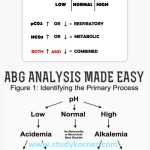SQL Joins Cheatsheet This is just a simple article visually explaining SQL JOINs The seven Joins I will discuss are: Inner JOIN, Left JOIN, Right JOIN, Outer JOIN, Left Excluding JOIN, Right Excluding JOIN, Outer Excluding JOIN, while providing examples of each. … [Read more...] about SQL Joins Cheat sheet
Top 50 Linux Commands you must know with example
Top 50 Linux Commands you must know with example Using Linux command on a regular basis? Today we’ll look at 50 Linux commands you must know! The commands listed below are some of the most useful and most frequently used Linux commands. Let’s get right into it! … [Read more...] about Top 50 Linux Commands you must know with example
Oblivionaire Meaning in Urdu with 2 Definitions and Sentence(s)
Oblivionaire Meaning in Urdu with 2 Definitions and Sentence(s) oblivionaire \ ə-ˈbli-vē-ə-ner \ noun “oblivionaire” means (بھولنے والا) a billionaire who chooses to be blind to the disparity and inequality that his or her wealth is creating. Means mean Zardari and or Sharifs in Pakistan Rohana Khattak, 16, from Islamabad, Pakistan winner of our New York Times … [Read more...] about Oblivionaire Meaning in Urdu with 2 Definitions and Sentence(s)
ABG Nursing Cheat Sheet Tic Tac Toe
ABG Nursing Cheat Sheet Arterial Blood Gases ABGs Cheat Sheet ABG is compensated or uncompensated? When PaCO2 and HCO3 values are high but pH is acidic, then it indicates partial compensation. It means that the compensatory mechanism tried but failed to bring the pH to normal. If pH is abnormal and if the value of either PaCO2 or HCO3 is abnormal, it indicates that the … [Read more...] about ABG Nursing Cheat Sheet Tic Tac Toe
Tree of Self Image and Self Esteem
Tree of Self Image and Self Esteem Therapy Tools Play Therapy Coping Skills Life Skills There are 4 components that define the esteem you might feel for yourself: self-confidence, identity, feeling of belonging, and feeling of competence. Core Components Of Self-Esteem A feeling of personal and interpersonal security A sense of social belonging A sense of … [Read more...] about Tree of Self Image and Self Esteem




